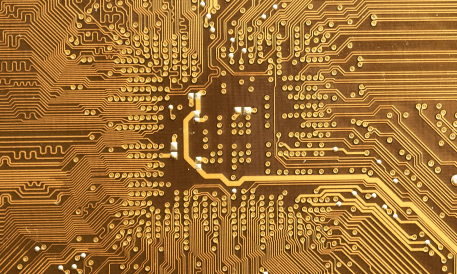A recent computer chip innovation has the potential to expedite artificial intelligence (AI) applications, heightening the speed and efficiency of business operations. EnCharge AI, in collaboration with Princeton University and backed by the U.S. Defense Advanced Research Projects Agency (DARPA), is embarking on a project to develop advanced processors capable of executing AI models. This initiative falls under DARPA’s Optimum Processing Technology Inside Memory Arrays (OPTIMA) program, a substantial $78 million endeavor aimed at crafting faster, more energy-efficient, and scalable compute-in-memory accelerators tailored for commercial AI applications. Jonathan Morris, the vice president of government affairs and communications at EnCharge, emphasized the significance of bringing AI capabilities to the forefront of business operations. By enabling AI inference on-device through the deployment of efficient AI processors, the barriers posed by cloud reliance, high entry costs, energy consumption, and privacy concerns can be mitigated, paving the way for a host of novel use cases and enhanced user experiences.
Pervasive Integration of AI Chips
The joint effort between EnCharge AI and Princeton University seeks to explore cutting-edge developments in AI technology and the feasibility of running AI applications end-to-end using the latest computer chips. The primary objective is to extend the reach of AI beyond large data centers, making it accessible for integration into everyday gadgets such as smartphones, vehicles, and industrial facilities. Leveraging EnCharge AI’s expertise in commercializing switched-capacitor analog in-memory computing chips, the project aims to enhance the speed and efficiency of these chips with DARPA’s support. These innovative chips promise significant efficiency gains compared to conventional digital accelerators while upholding precision and scalability unattainable with traditional electrical current-based analog computing methods. The anticipated impact of these advanced computer chips includes accelerated performance in personal computers, empowering users to leverage business software more effectively without compromising on privacy or security. Envisioned applications span from AI assistants with localized data awareness to real-time language translation, meeting transcription, and dynamic content generation, heralding a new era of productivity enhancements akin to the smartphone revolution.
EnCharge AI faces stiff competition in the AI accelerator hardware landscape, with companies like Axelera and GigaSpaces also delving into in-memory hardware solutions to expedite AI tasks. NeuroBlade, with its venture capital backing, is developing an in-memory inference chip tailored for both data centers and edge devices, further intensifying the competitive landscape.
Enhanced Energy-Efficient Chips
The burgeoning demands of AI software outstrip the capabilities of current hardware, particularly in scenarios where power consumption is constrained. Consequently, many AI applications currently rely on large, costly, and power-intensive server clusters in the cloud. Transitioning AI processing from cloud servers to personal computers necessitates a significant improvement in computational efficiency, a goal that the new generation of chips aspires to achieve. Jonathan Morris underscored the necessity of dedicated accelerators, such as Neural Processing Units (NPUs), for AI-centric applications on PCs, drawing parallels to the evolution of GPU-accelerated computing to meet the demands of 3D rendering tasks. As the landscape evolves, the advent of AI PCs equipped with specialized accelerators is poised to revolutionize the efficiency and efficacy of AI applications, ushering in a new era of computing capabilities.










